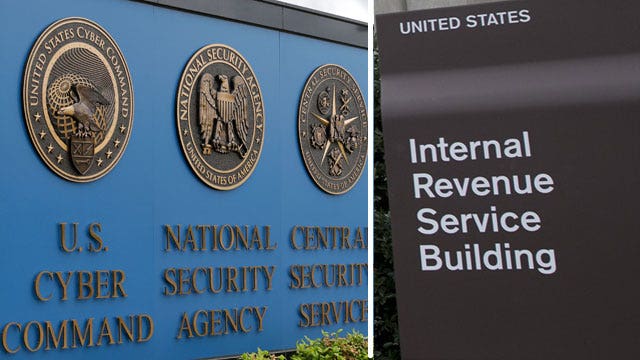The journalist who has published a string of reports based on documents from National Security Agency leaker Ed Snowden claims he has evidence that "low-level" analysts have easy access to a database that lets them browse the phone, email and Internet histories of anyone.
The Guardian's Glenn Greenwald, who is scheduled to speak before a bipartisan congressional group on Wednesday, said he plans to publish a report on the latest findings later this week.
Though some top officials have denied the NSA offers this kind of access to its workers, Greenwald said that's not true. In an interview on ABC News' "This Week," Greenwald said "low-level" employees as well as contractors like Snowden can dip into a vast system of information on peoples' communications.
He likened the database to a supermarket cash register.
"The NSA has trillions of telephone calls and emails in their databases that they have collected over the last several years," he said. "And what these programs are, are very simple screens like the ones that supermarket clerks or shipping and receiving clerks use where all an analyst has to do is enter an email address or an IP address and it does two things -- it searches that database and let's them listen to the calls or read the emails of everything that the NSA has stored, or look at the browsing histories or Google search terms that you've entered."
Greenwald said that unlike with other surveillance programs, there is no special court determining whether analysts can review Internet and phone records.
"It's an incredibly powerful and invasive tool exactly of the type that Mr. Snowden described ... and I defy them to deny that these programs work exactly as I just said," Greenwald said.
On the same program, Republican Georgia Sen. Saxby Chambliss said he just visited the NSA and was assured that "there is no capability at NSA for anyone without a court order to listen to any telephone conversation or to monitor any email."
Chambliss said "no emails are monitored now," either.
"They used to be, but that stopped two or three years ago. So I feel confident that there may have been some abuse, but if it was it was (purely) accidental," he said.
Greenwald, as he rolls out the next set of claims regarding the NSA programs, plans to participate remotely on Wednesday in a bipartisan congressional event on domestic surveillance.
The event is also expected to include speakers from the Cato Institute and the ACLU.





